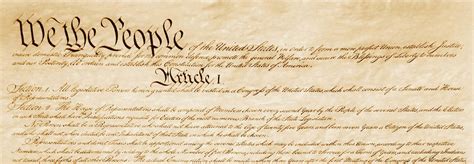By Quin Hillyer
Conservative constitutionalists, no less than politicians, should heed the old campaign maxim that people don’t care how much you know until they know how much you care.
Speaking at the Mobile, Ala., chapter of the Federalist Society on Oct. 22, law professor Randy Barnett didn’t use those words, but his message was strikingly similar.
“Our story is a better story,” Barnett said of those who advocate conservative jurisprudence. “We just need to tell it.”
Barnett, the director of the Georgetown (University) Center for the Constitution, said that conservatives explaining their approach to judging often sound as if they are concerned only with a slavish veneration of the past and of technical aspects of the law, rather than with true “justice” in the broader sense. Today’s political liberals thus make conservatives sound heartless, not to mention insensitive to the horrors of slavery that liberals say is part and parcel of any “originalist” approach to applying the Constitution.
Barnett said that portrayal of conservative constitutionalism is wrong for two reasons. The original public meaning of the Constitution always should be read, he said, in light of the principles enunciated in the Declaration of Independence, which is a superb exemplar of justice writ large. It’s not that the Declaration’s text is itself technically “law,” but that its principles infuse the entire American order, including the Constitution, and that the Constitution must be interpreted in that context.
Second, Barnett said that “originalism” refers to each part of the Constitution, including the formally adopted amendments – and that the post-Civil War amendments are unambiguously grounded in equal justice under the law, against both slavery and any other race-based classification. (Indeed, Barnett’s new book, to be released Nov. 2, is a deep dive into the “original meaning” of the most far-reaching of those amendments, the Fourteenth.)
Alas, said Barnett, the Supreme Court botched the interpretation of the Fourteenth Amendment in a line of decisions beginning with the Slaughterhouse Cases. An “originalism” that properly applies the Fourteenth Amendment not only would get the law right, he said, but also quite naturally would advance true justice. Such justice, he said, emphasizes the rights of the individual, not the grievances of a group.
The political Left’s conception of “social justice” and “wokeness,” he said, “is not justice properly conceived” because its focus on group grievances completely upends the concepts of liberty, or “natural rights,” embedded in the Declaration and Bill of Rights, especially as further secured through the Fourteenth Amendment.
Part of the very mission statement of the Federalist Society, Barnett noted, is that “the state exists to preserve freedom.” He said that freedom is preserved through the Constitution’s limitations on government power, and that these “structural constraints of the Constitution work to advance substantive justice.” Yet without adequate reference to natural rights — a reference that conservative jurisprudence usually assumes, but to which conservative constitutionalist too seldom refer — “conservatives are unable to clearly explain why it is that ‘social justice’ conflicts with real justice.”
(A shortened version of Barnett’s Mobile speech is available, by the way, beginning at the 32:20 mark of this event from November 2020.)
Read More From The PatriotAmerican
“A full account of our history,” Barnett said, would both accurately and deservedly attract wider public support for conservative jurisprudence than the dry, technical, apparently unempathetic attitude that political conservatives too often exude.
Amendments included, Barnett said, “our Constitution is a good Constitution.”
If conservatives tell that story, the broader public will know we care, and support for proper constitutionalism will rise.

